Religion
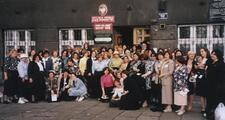
Torah Study

Alina Treiger
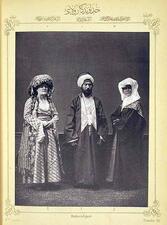
Turkey: Ottoman and Post Ottoman
The Jewish population of Turkey navigated far-reaching changes in the political, social, and geopolitical spheres in the late nineteenth and the early twentieth centuries, as the Ottoman Empire pursued reform and collapsed and the Turkish Republic that took its place imposed a process of “Turkification” on its residents. During this period, Jewish women partook in traditional customs relating to religion, family, and the home, while also accessing new opportunities in the public sphere through education and political engagement.
Two Prostitutes as Mothers: Midrash and Aggadah
Union of Jewish Women
Influenced by their American counterparts, Anglo-Jewish women organized a Conference of Jewish Women in 1902, which led to the foundation of a national organization, the Union of Jewish Women. The UJW determined the social service agenda for English Jewish women until World War I.
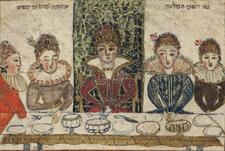
Vashti: Bible
In the biblical Book of Esther, Vashti is wife of the king of Persia who refuses his request to appear before the royal guests at a banquet. Her episode introduces several themes that occur throughout the book, and she sets in motion the rest of story’s events when her refusal leads to her being deposed and replaced as queen by Esther.

Vashti: Midrash and Aggadah

Deborah Waxman
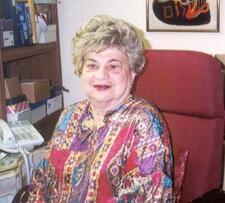
Hanna Weinberg
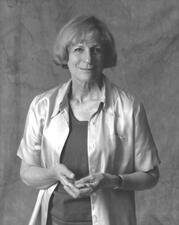
Ruth Weisberg
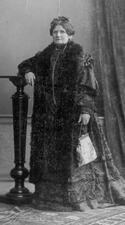
Pauline Wengeroff
Pauline Wengeroff was the author of an extraordinary two-volume work in German, Memoirs of a Grandmother: Scenes from the Cultural History of the Jews of Russia in the Nineteenth Century. First published in 1910, the memoir richly depicts traditional Jewish society in Russia, its unraveling during the nineteenth century, and the devastating impact this dissolution had on families and especially on women.
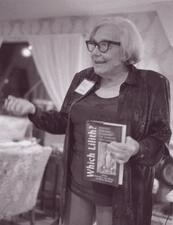
Henny Wenkart
Widow of Zarephath: Bible
Narratives about the ninth-century B.C.E. prophet Elijah are found in 1 Kings 17–19 and 21 and in 2 Kings 1–2. Like his successor, Elisha, he is depicted as having many of the attributes of Israel’s later prophetic figures. One of these characteristics—concern for the oppressed and socially marginalized—is revealed in the story of the widow of Zarephath.
Widow of Zarephath: Midrash and Aggadah
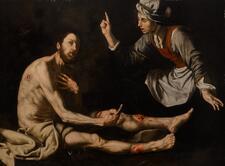
Wife of Job: Apocrypha
While the Wife of Job has a limited role in the biblical narrative, the apocryphal Divrei Lyov transforms her into a central character of the plot. Unique to the apocryphal account, Job is cited as having two wives, Utzit and Dinah, whereas the midrashic account has Job marrying only one woman.

Wife of Job: Bible
In characterizing her husband’s unconditional devotion to God as an act of cowardice, Job’s nameless wife is the one who opens the possibility of speaking against God. Much like Eve, Job’s wife prompts her husband to doubt God’s use of divine powers and, in doing so, she deepens his knowledge and opens his eyes.

Wife of Job: Midrash and Aggadah
Job’s wife is the subject of a moral critique by the midrash for advising her husband to commit blasphemy. Different midrashim account for the possible outcomes and motives of her actions.
Wife of Korah: Midrash and Aggadah
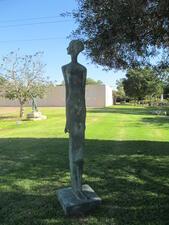
Wife of Lot: Bible
Lot, his wife, and his daughters are urged to escape the violence in Sodom that ensues when the local people want to rape two visitors to Lot’s house. Lot and his family are told not to look back when they flee, but Lot’s wife does look back and is turned into a pillar of salt. This gripping narrative contains elements of folklore and provides an explanation for the salt formations along the Dead Sea.
Wife of Manoach; Samson's Mother: Midrash and Aggadah
Wife of On Ben Pelet: Midrash and Aggadah
The wife of On Son of Pelet is not mentioned in the Bible. However, the midrash credits her for saving her husband’s life. Her strong character allowed her to perform an “unbecoming” act to achieve a higher goal: rescuing her home and family.
Wifebeating in Jewish Tradition
Wise Woman of Abel Beth-Maacah: Bible
The second of two “wise women” portrayed in 2 Samuel lived in a fortified city in northern Israel. More straightforwardly than the story of the wise woman of Tekoa (2 Samuel 14), this narrative depicts what must have been typical leadership activities of a woman in this accepted position against the larger political tensions of David’s reign.
Wise Woman of Abel-beth-maacah: Midrash and Aggadah
Wise Woman of Tekoa: Bible
The midrash includes the wise woman from Tekoa among the twenty-three truly upright and righteous women who came out of Israel. The Rabbi’ note that because the residents of Tekoa frequently used olive oil, they were wise. The woman’s wisdom was therefore linked to the blessing of olive oil and, in the opinion of the Rabbis, reflected the wisdom of all the area’s inhabitants.


